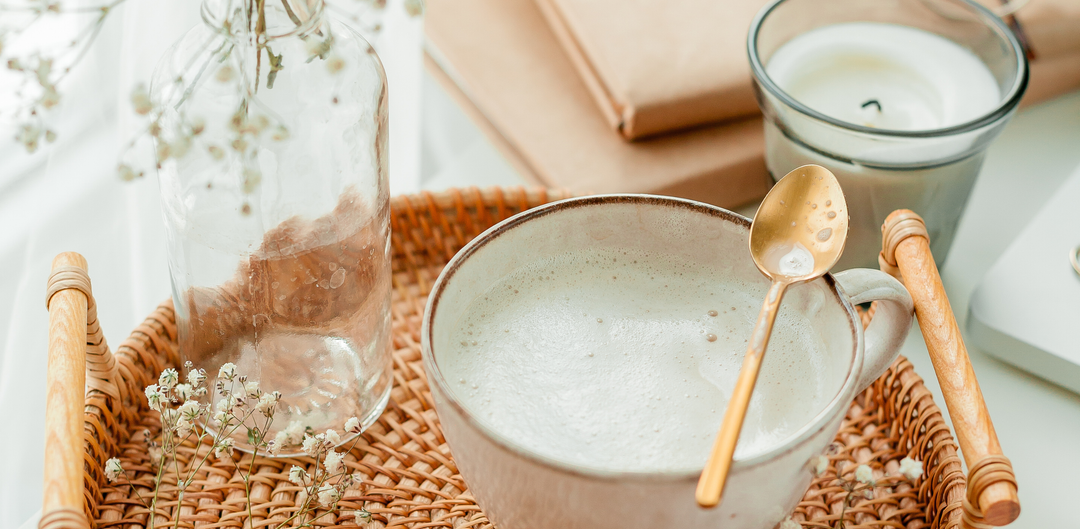Introduction: Why Oils Matter in Skincare
Oils are one of the oldest skincare ingredients in the world. Ancient cultures used plant oils to cleanse, protect, and nourish the skin, a tradition that continues today. But in the modern beauty industry, not all oils are created equal. While natural plant oils offer vitamins, antioxidants, and fatty acids, synthetic oils are often designed in labs to create a smooth texture without the nutrients.
So, which one should you trust for your skin? Let’s dive into the key differences, benefits, and how to choose the best oils for your routine.
What’s the Difference Between Plant Oils and Synthetic Oils?
When you see “oil” listed on a skincare label, it can mean two very different things:
-
Plant Oils: Extracted from seeds, nuts, fruits, or algae. These are nutrient-rich and naturally biocompatible with skin. Examples: Rosehip Oil, Manuka Oil, Kōakaheart Oil, Alaria Esculenta (seaweed extract).
-
Synthetic Oils: Man-made ingredients like silicones (dimethicone, cyclopentasiloxane) or mineral oils (petroleum-derived). These are designed to feel silky or form a protective film on the skin.
Key takeaway: Plant oils feed your skin, while synthetic oils mostly coat it.
Why Are Plant Oils So Beneficial for Skin?
Plant oils aren’t just moisturisers! They’re natural sources of skin-loving compounds.
✨ Top Benefits of Plant Oils:
-
Nutrient Dense: Packed with omega fatty acids, vitamins A, C, and E, and antioxidants.
-
Barrier Support: Strengthen the skin barrier, keeping hydration in and irritants out.
-
Biocompatible: Easily absorbed because they mimic the skin’s own sebum.
-
Soothing: Many plant oils have anti-inflammatory and antibacterial properties.
-
Sustainable: Renewable, biodegradable, and eco-friendly.
Hark & Zander uses OceanDerMX™ blends with native botanicals like Manuka and Kōakaheart Oil. These formulations have been clinically studied to improve skin hydration and elasticity. Head here to learn more about our scientifically backed formulations.
Are Synthetic Oils Bad for Your Skin?
Not necessarily — but they come with limitations.
Pros of Synthetic Oils:
-
Lightweight, silky texture
-
Long shelf life and high stability
-
Can create a temporary smooth finish
Cons of Synthetic Oils:
-
Mostly occlusive, meaning they sit on top of skin
-
Lack nutrients (no vitamins, fatty acids, antioxidants)
-
Can clog pores in some skin types
-
Often petroleum-derived, raising sustainability concerns
-
“Petroleum-derived ingredients, like mineral oil and petrolatum, are byproducts of fossil fuel extraction—which is known to cause widespread water and ecosystem harm through pollution and oil spills” (Rosilda, Shrisha, and Bhuvana, Petroleum Industries and Its Impact of Petroleum Extraction on the Environment, 2024).
-
In short: they’re good for texture but don’t contribute to long-term skin health.
Which Oils Are Best for My Skin Type?
Choosing the right oil depends on your skin’s unique needs.
🌸 Dry or Dehydrated Skin
-
Kōakaheart Oil – deeply hydrating and barrier-repairing
-
Avocado Oil – rich in omega fatty acids
-
Rosehip Oil – supports regeneration
🌿 Oily or Acne-Prone Skin
-
Manuka Oil – antibacterial, balances sebum
-
Jojoba Oil – mimics natural sebum, regulates oil
-
Grapeseed Oil – lightweight, non-comedogenic
✨ Sensitive or Reactive Skin
-
Kōakaheart Oil – soothing, anti-inflammatory
-
Calendula Oil – calming properties
-
Oat Kernel Oil – barrier-supporting
🌊 Mature or Dull Skin
-
Alaria Esculenta (Seaweed Extract) – plumping, energising, improves firmness
-
Rosehip Oil – brightening and smoothing
-
Pomegranate Oil – antioxidant powerhouse
Hydration vs. Moisture: How Oils Actually Work
One common skincare myth is that oils “hydrate” the skin. In reality, oils don’t add water, they lock it in.
-
Hydration = water content in skin (toners, serums help with this).
-
Moisture = oil content in skin (plant oils + moisturisers help with this).
That’s why oils are most effective when layered at the end of your skincare routine, to seal in all the hydration from your toner and serum. For more information, check out our entry on the most effective way to layer your skincare!
How Do Plant Oils Compare to Synthetic Oils in the Long Run?
| Feature | Plant Oils | Synthetic Oils |
| Nutrients | Rich in fatty acids, vitamins, antioxidants | None |
| Barrier Support | Strengthen and repair | Mostly sit on surface |
| Absorption | Biocompatible, easily absorbed | Surface-level, silky feel |
| Sustainability | Renewable, biodegradable | Often petroleum-derived |
| Skin Benefits | Long-term health, glow, resilience | Quick-fix smoothness |
How Plant Oils Fit Into a Skincare Routine
Plant oils are most powerful when used as part of a complete system.
5-Step Routine for Radiant Skin:
-
Cleanser – clears impurities without stripping
-
Toner – replenishes hydration
-
Serum – delivers actives
-
Moisturiser – locks in hydration
-
Face Oil – seals in goodness, deeply nourishes
This layering method ensures your skin receives hydration, protection, and nourishment in the right order.
FAQ: Plant Oils vs. Synthetic Oils
Q: Are all synthetic oils harmful?
No, many are safe and non-comedogenic. But they don’t offer the nutritional value plant oils provide.
Q: Can oily or acne-prone skin use plant oils?
Yes! Lightweight, non-comedogenic oils like Manuka or Kōakaheart can balance oil production and calm irritation.
Q: Do plant oils expire faster?
Some can, but high-quality formulations like Hark & Zander’s are stabilised to stay fresh and effective.
Q: What’s the best oil for anti-ageing?
Alaria Esculenta (seaweed) and Rosehip Oil are both rich in antioxidants that help protect against free radical damage.
Conclusion: What Your Skin Really Needs
Synthetic oils may offer a temporary silky feel, but they can’t match the nutrient-rich, skin-loving benefits of plant oils. By choosing natural, clinically studied botanicals, you’re not only nourishing your skin but also supporting its barrier, resilience, and radiance for the long term.
✨ Ready to experience the difference? Explore Hark & Zander’s MiracleFirm Smoothing Serum and SkinTonic Face Oil, crafted with powerful plant oils and OceanDerMX™ blends for skin that feels plump, bouncy, and naturally radiant.





